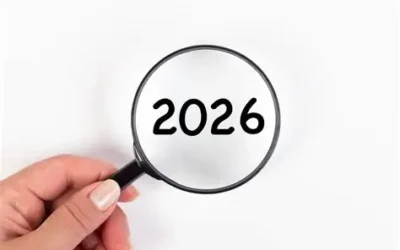
The real estate market in the Netherlands is currently a key issue due to the ongoing housing crisis. This article will explore why there are more houses being sold than rented, particularly during the period from 2023 to 2027.
Impact of Ownership on Dutch Residents and Non-Residents
Dutch tax residents must declare their worldwide income and assets, including real estate, when filing their personal tax return. Non-residents who own real estate in the Netherlands are also required to declare their property. Below is an overview of the tax rules applicable to both residents and non-residents.
Dutch Tax Residents
- Box 1: Main Residence
Properties used as a main residence fall under “box 1” taxation. If a property is financed with a mortgage, a mortgage interest deduction may apply. Mortgage-related costs, such as notary fees, are also deductible. - Box 3: Second Homes and Other Properties
Second homes and properties not used as a main residence are taxed under “box 3” at the WOZ value (the Dutch property value system), minus the mortgage value, if applicable. Properties owned as of January 1 of a given year must be declared in that year’s tax return. - Real Estate Abroad
Worldwide savings and investments must be declared, but real estate abroad is typically taxed in the country where it is located, based on tax treaties. These properties must still be reported on the Dutch tax return, but double taxation relief ensures no additional tax is due in the Netherlands. - Relocation and Property Sale
If a new property is purchased before selling the current residence, both properties can remain under “box 1” with mortgage interest deduction eligibility, provided the old property is vacant and on the market. This allowance is available for up to three years, plus the year of relocation.
Non-Residents with Real Estate in the Netherlands
Real estate in the Netherlands is taxed in the Netherlands under most tax treaties. Non-residents who own property in the country are subject to Dutch taxes and must report their real estate. Properties are generally taxed under “box 3” at the WOZ value, minus the mortgage value.
Tax Implications When Leaving the Netherlands
- Main Residence Status
Upon leaving the Netherlands, a Dutch property may no longer qualify as a main residence and may be moved from “box 1” to “box 3” for tax purposes. Exceptions exist depending on the property’s status (e.g., for sale, rented, or kept for personal use). - Rented Property
If the property is rented out, it will be subject to “box 3” taxation at WOZ value, minus the mortgage. - Property on Sale
A house listed for sale after relocation can remain under “box 1” for up to three years, plus the year of relocation. The mortgage interest deduction applies even if the individual is no longer a Dutch resident, with deductions balanced against Dutch income. If the income is insufficient to offset the deduction, it can be carried forward for up to nine years. - Temporary Emigration
In cases of temporary emigration, where the house is kept for future use, the property may still be taxed under “box 1,” with the mortgage interest deduction remaining applicable. To avoid “box 3” taxation, the following conditions must be met:
– The house was owned for at least one year before emigration
– The house served as the main residence during that year
– The property is not rented out
– The individual does not own another home abroad but may rent one
These rules outline how property ownership is treated for tax purposes for both Dutch residents and non-residents.
Upcoming Changes and Impact
As part of the 2025 Tax Plan, new rules for Box 3 may also affect real estate. The flat rate for the first home in Box 3 will be abolished, meaning all homes in Box 3 will be taxed according to capital gains tax. Additionally, immovable property not taxed under Box 1 will also be taxed under Box 3, with indirect returns subject to capital gains tax. Tax will be imposed only when the property is sold, or upon the death or emigration of the taxpayer. Capital gains tax will be calculated by subtracting the acquisition price from the selling price. To determine the capital gain under the new Box 3 regime, the acquisition price for property owned at the time the new system is implemented will be based on its WOZ value.
Currently, many small investors and property owners sold their rental properties in 2023 and beyond as investment incentives diminished. Medium and large investors are expected to follow this trend. From 2025, legislative changes will affect property investors who frequently use loans to fund their projects, limiting the ability to deduct loan interest from corporate taxes. While property developers can currently deduct up to 1 million euros in interest per private company, the new 2025 tax regulations will eliminate this allowance, permitting deductions of only up to 20 percent of company profits. The government initiated the process of implementing a new Box 3 tax system in the previous year’s Outline Policy Document, with the consultation version of the Box 3 Actual Return Act released in September 2023. This legislation introduces a Box 3 tax based on actual returns, set to take effect in 2027. In conclusion, with potential benefit reductions and increased taxes, the number of sold properties is expected to rise in the near future.
References
Deloitte. (2024, February 07). Internet consultation box 3 levy based on actual return has been amended. Retrieved from Deloitte: https://www2.deloitte.com/nl/nl/pages/tax-news/articles/internet-consultation-box-3-levy-actual-return.html
Kaddour, M. (2021, December 10). Taxation on real estate in the Netherlands. Retrieved from Fiscaal van Morgen : https://www.fiscaalvanmorgen.nl/dossier/taxation-on-real-estate-in-the-netherlands/
KPMG Meijburg & Co. (2024, February 06). Changes to proposal for a new Box 3 regime as of 2027. Retrieved from KPMG Meijburg & Co: https://www.meijburg.com/news/changes-proposal-new-box-3-regime-2027
Pour, M. T. (2024, July 23). More Houses Are Sold Due To The New Tax Regulations 2024-2027. Retrieved from Financial Consultancy Holland: https://www.financialconsultancyholland.com/blog/more-houses-are-sold-due-to-the-new-tax-regulations-2024-2027
Photo:
https://www.atwtyresandmags.com.au/wp-content/uploads/2020/09/how-much-equity-release-cost-shutterstock_278179301-768.jpg


